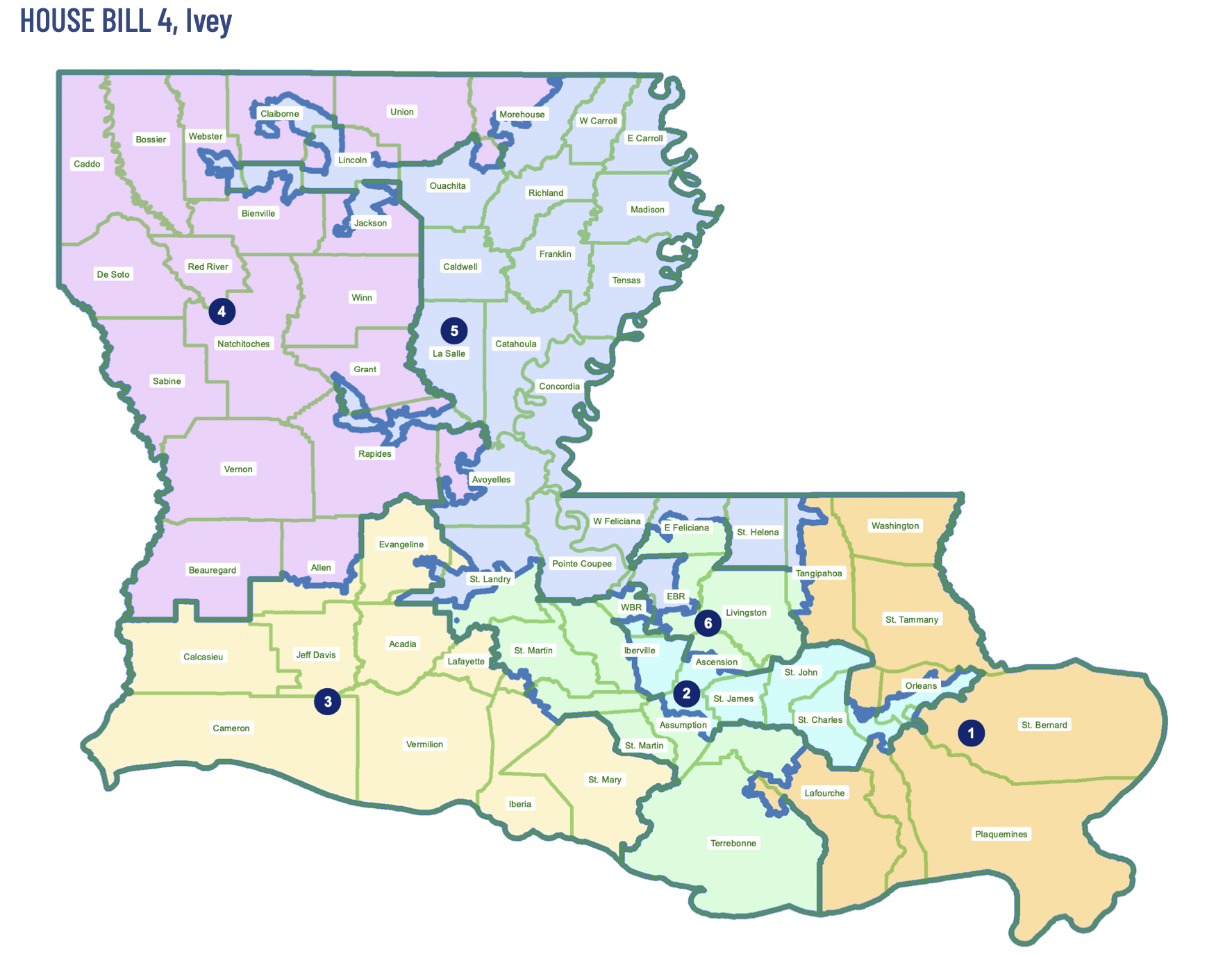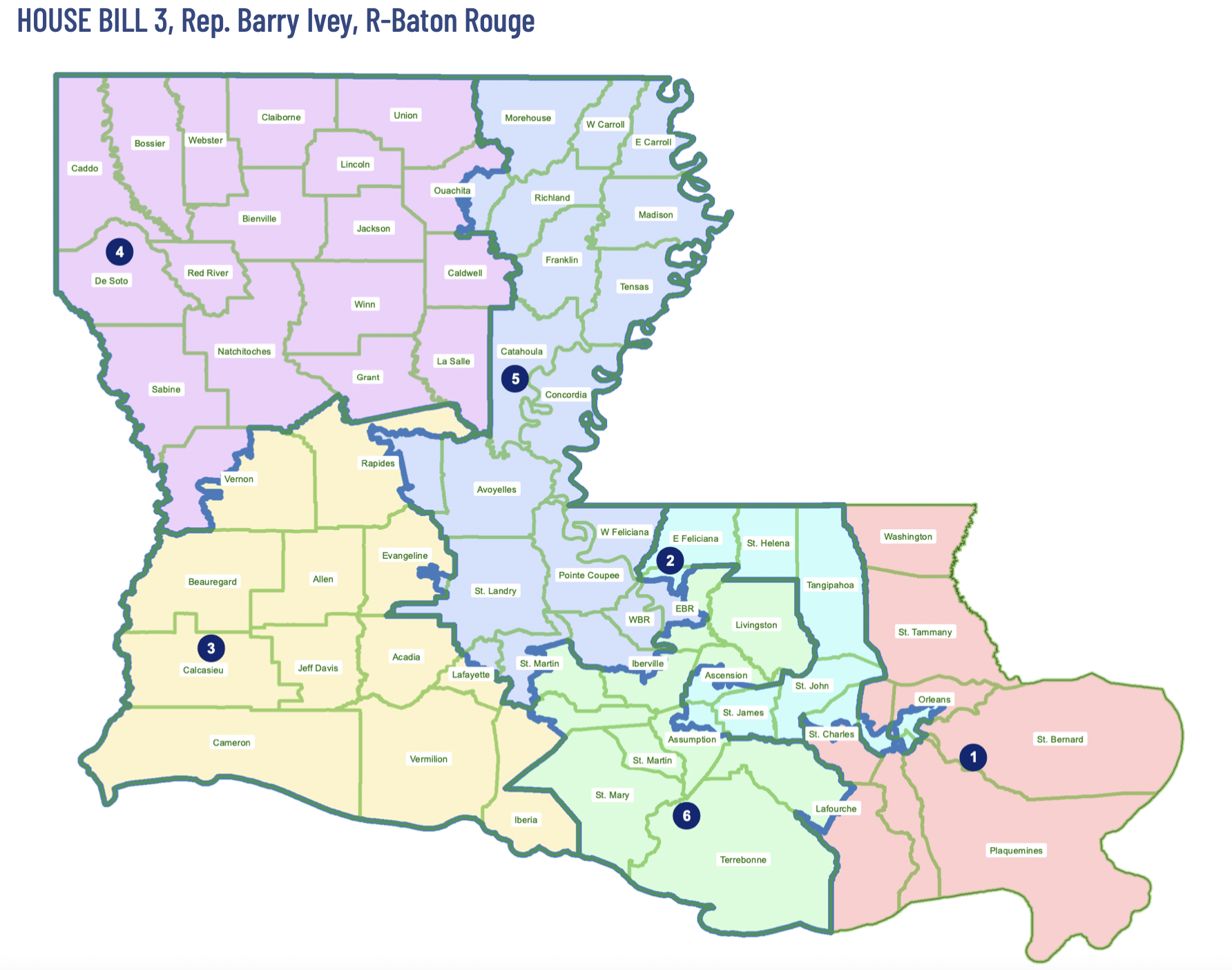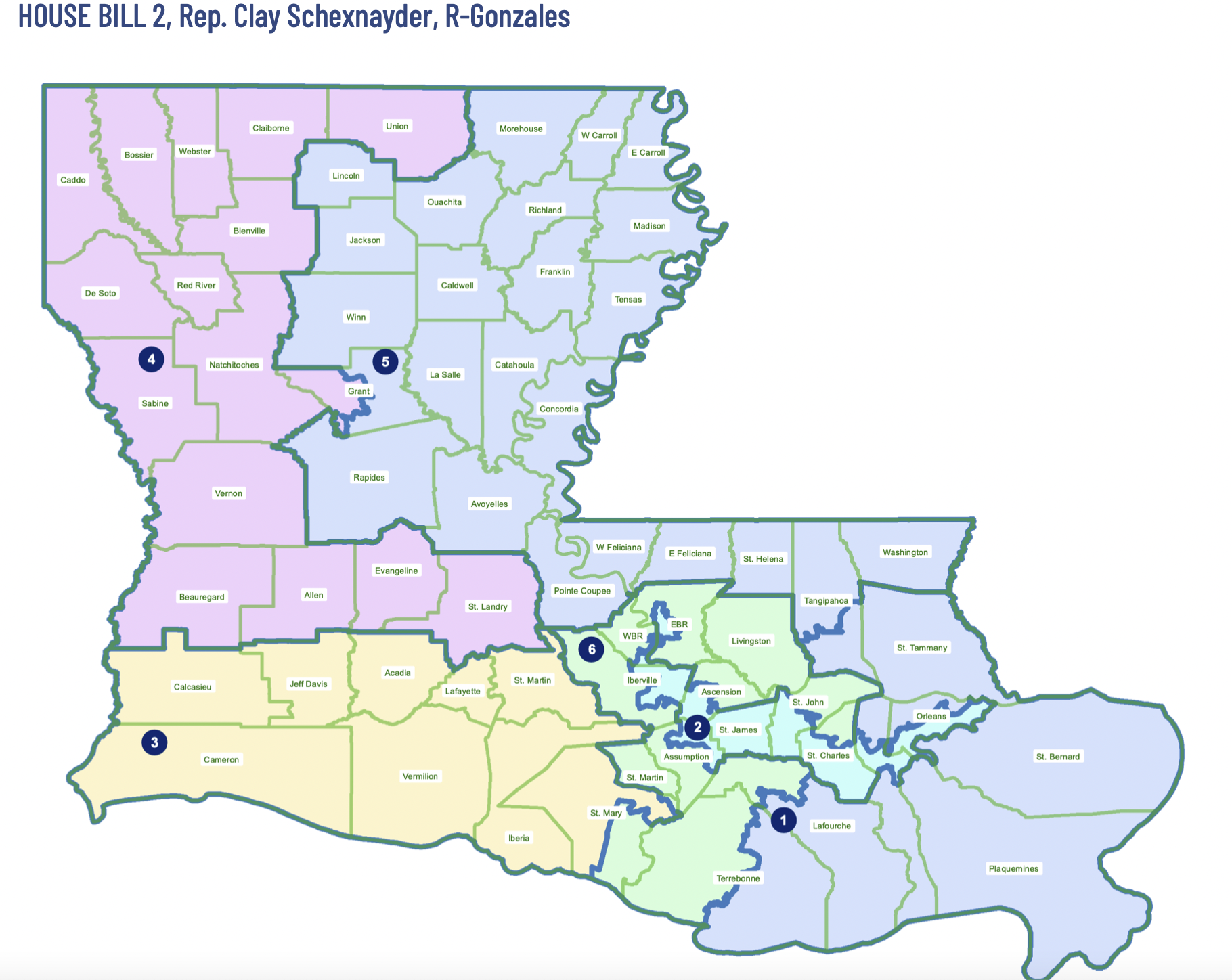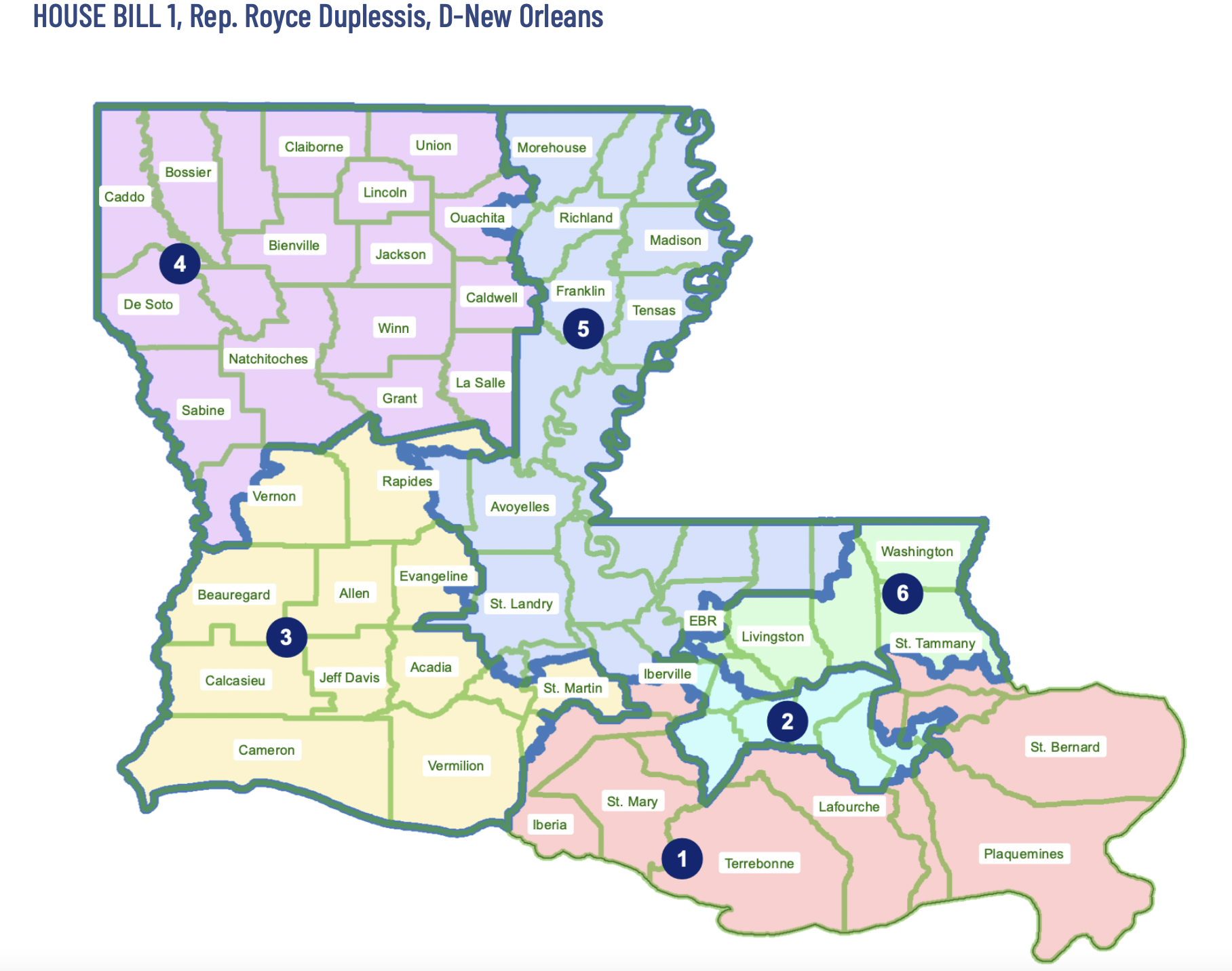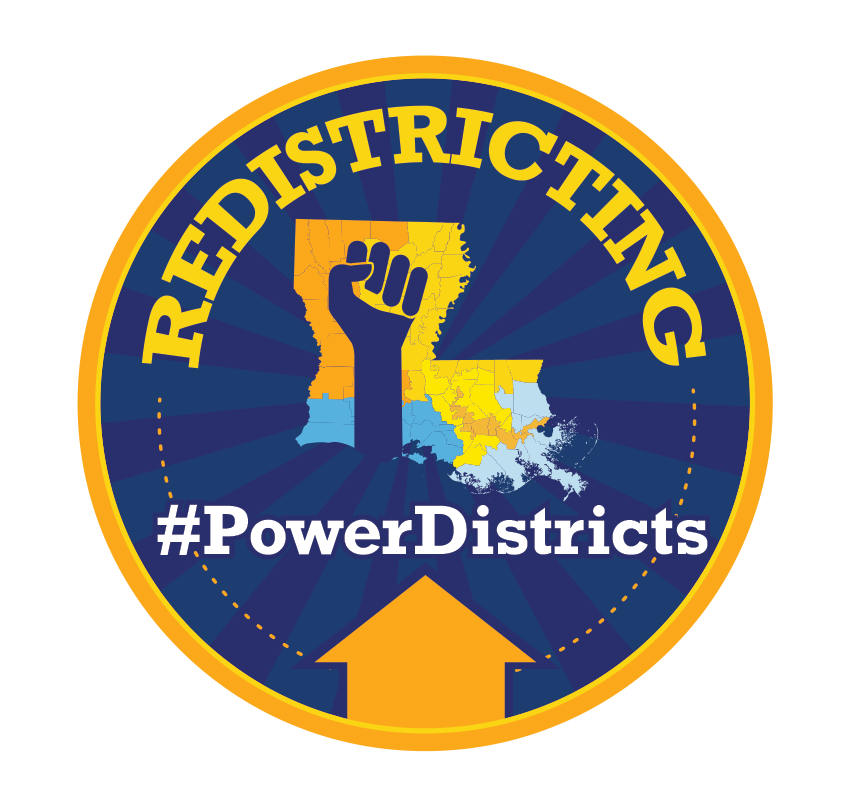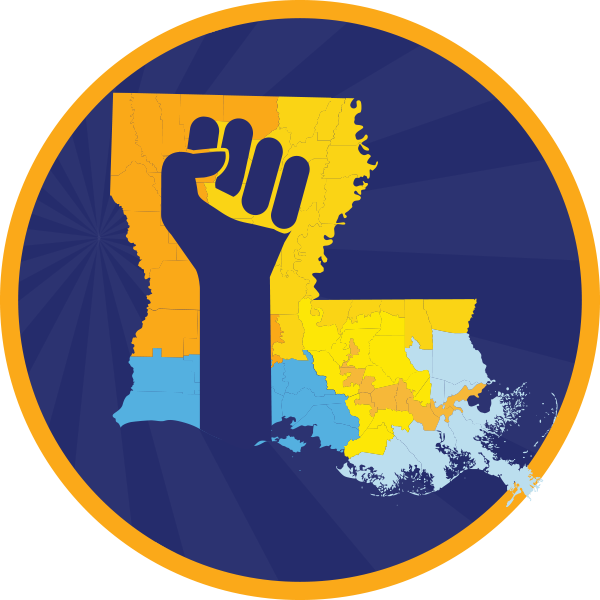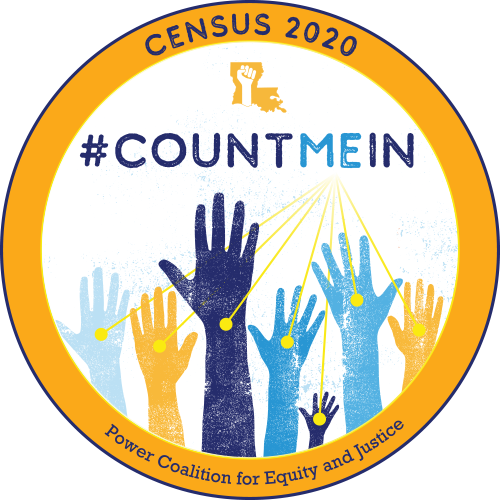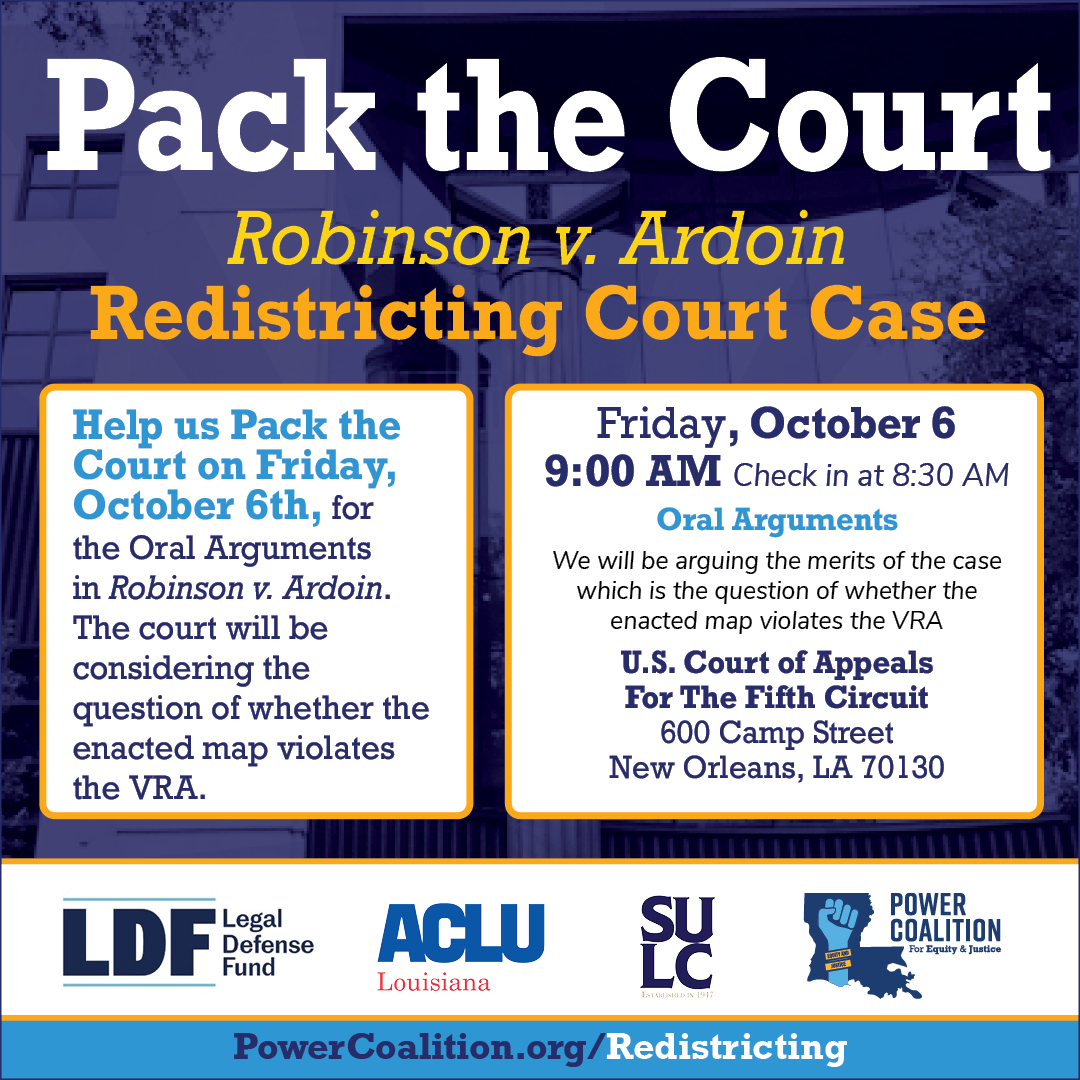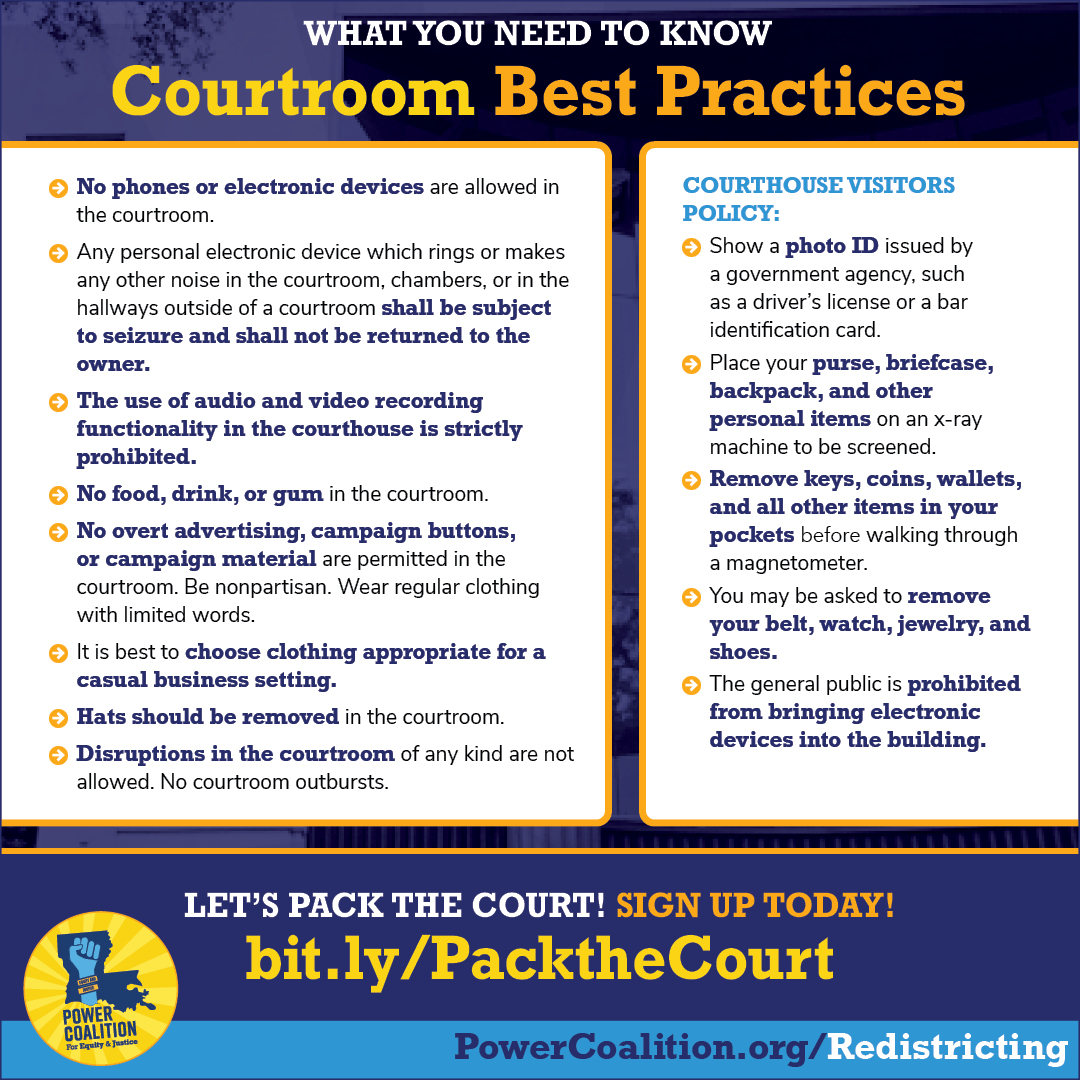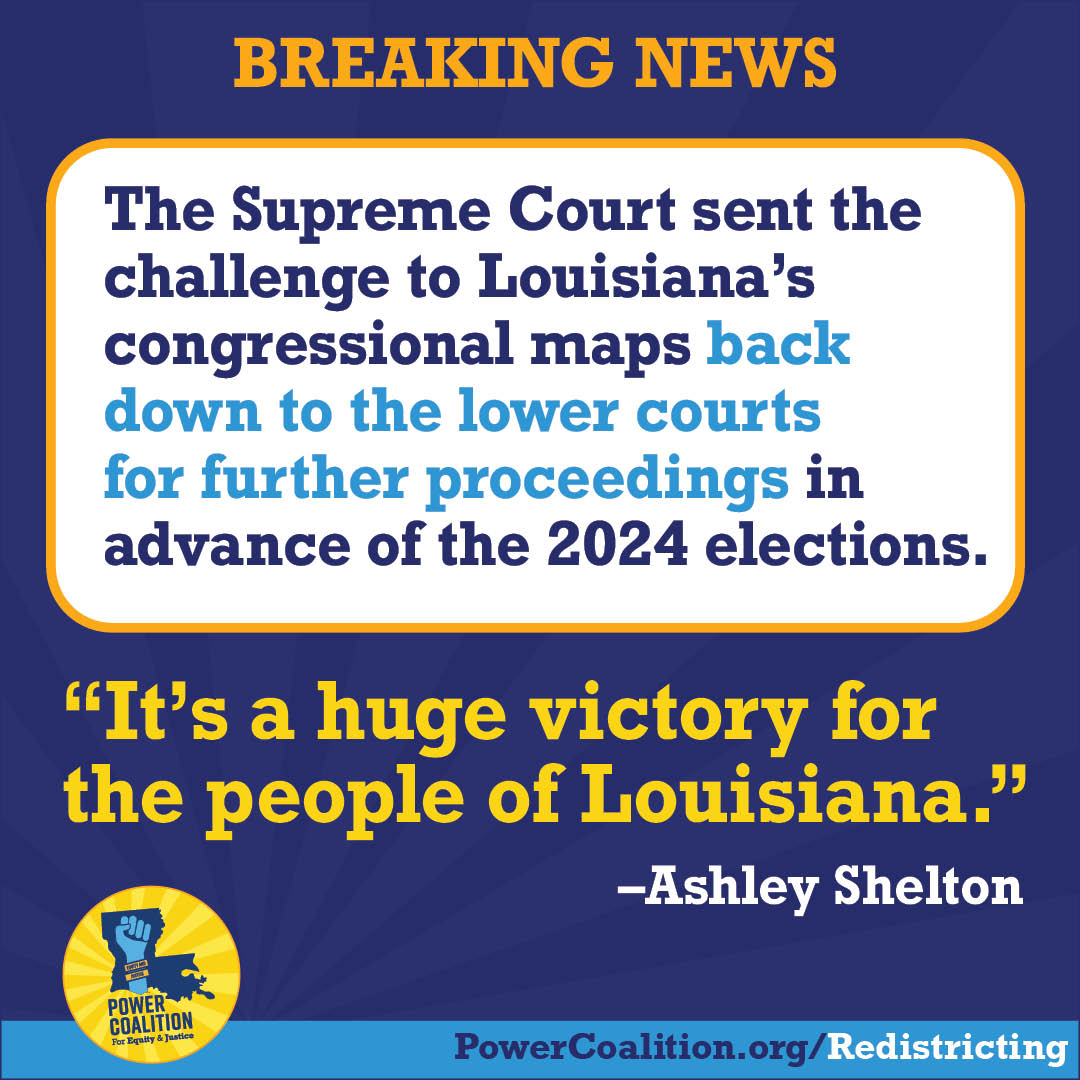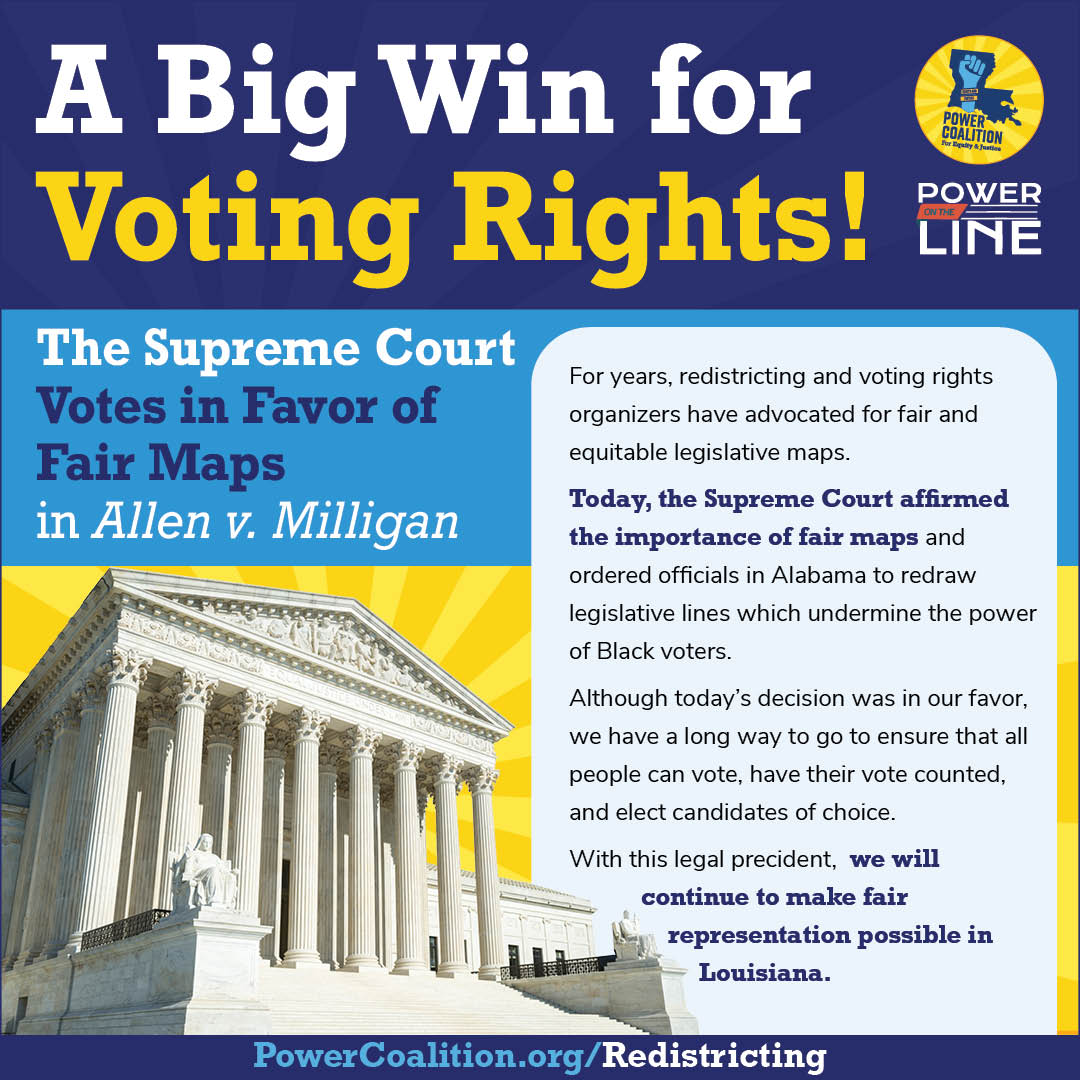The Fight for Fair Representation Continues
Redistricting 2021-2025 Timeline
Oral Arguments concluded for Nairne v. Landry.
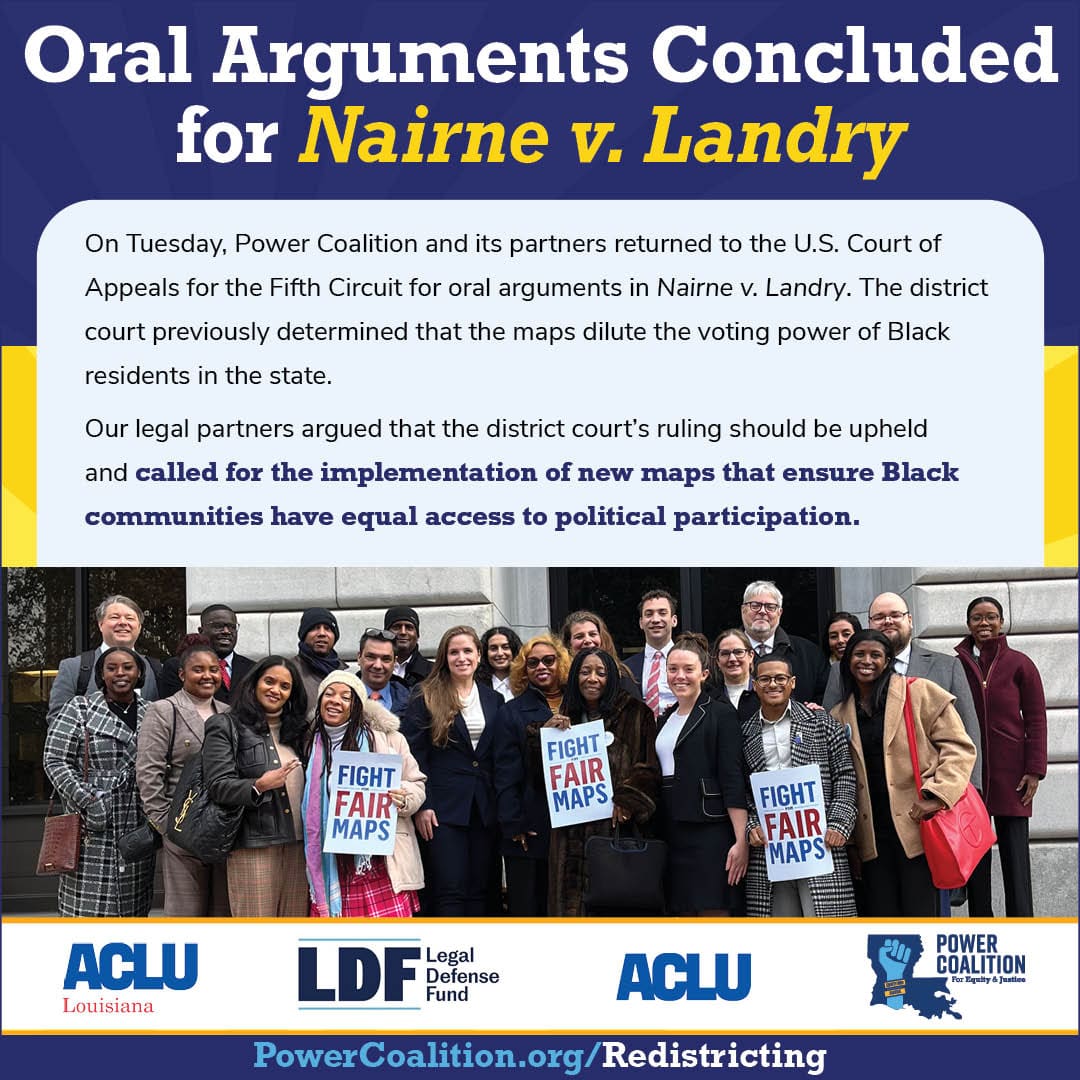
On Tuesday, Power Coalition and its partners returned to the U.S. Court of Appeals for the Fifth Circuit for oral arguments in Nairne v. Landry. The district court previously determined that the maps dilute the voting power of Black residents in the state.
Our legal partners argued that the district court’s ruling should be upheld and called for the implementation of new maps that ensure Black communities have equal access to political participation.
Supreme Court Overturns Map Ruling

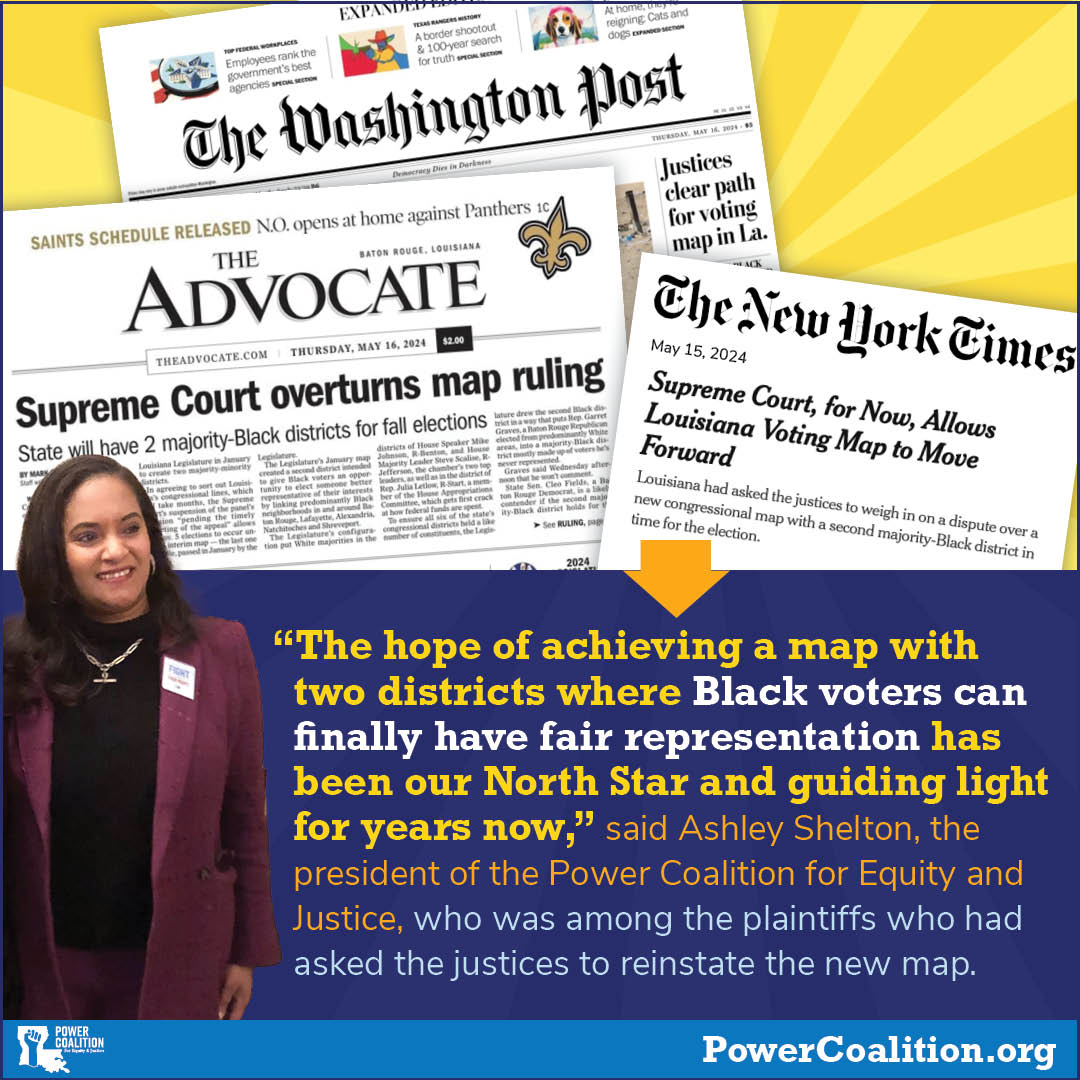
The Latest News In Our Fight For Fair Maps
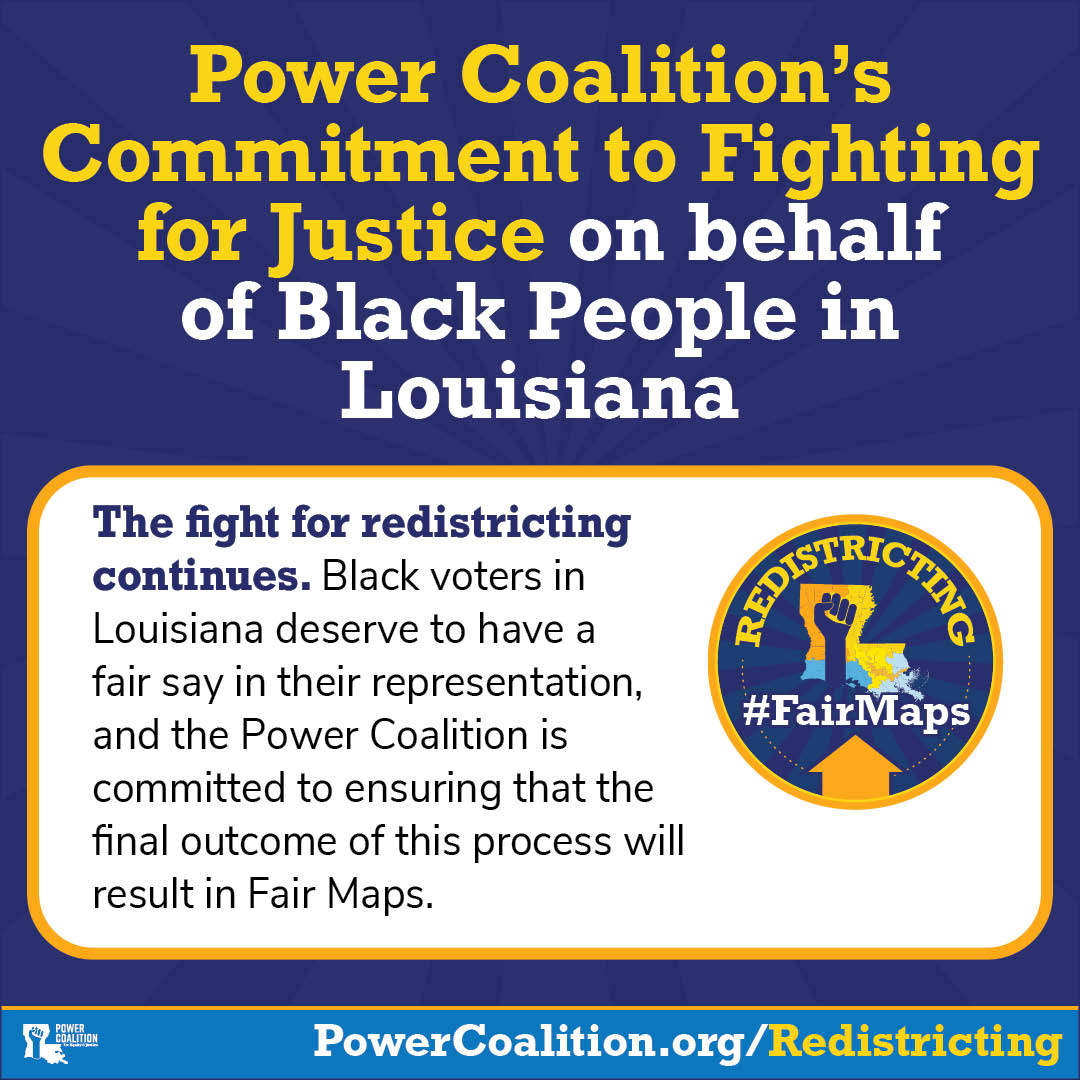

We’ve been fighting for fair maps for over four years. We thought we had won, but you may have heard this week that the map with a 2nd Black Majority district was overturned. Here is what happened:
On January 15, 2024 a special redistricting session began in the Louisiana state legislature to create new congressional districts in advance of 2024 presidential elections. This redistricting session was a response to a federal judge and an appeals court ruling that the state’s congressional plan likely violated the Voting Rights Act.
On January 19, 2024, Louisiana lawmakers approved a new congressional map that created a second Black-majority U.S. House District. Before the most recent map had been established, Black voters in Louisiana only possessed a majority in just one of the state’s six congressional districts, despite making up nearly a third of the statewide population. The map, signed by the governor, increased the percentage of Black voters in Louisiana’s 6th Congressional District from 23 percent to 54 percent, empowering Black voters with a majority in the district and creating a second majority-minority district.
What Happened?
12 days later, on January 31st, a group filed a lawsuit against the newly map signed into law (Callais v. Landry), challenging the map under the 14th Amendment claiming racial gerrymandering.
The three panel judge ruled in favor of the plaintiffs and struck down the new congressional map. This leaves Louisiana without settled congressional maps, 6 months before the November elections, which poses a major roadblock.
On Tuesday April 30th two judges appointed by former President Donald Trump (Judge David C. Joseph and Judge Robert R. Summerhays) authored the majority opinion which ultimately struck down the new congressional map that contained two-minority majority districts in the state of Louisiana.
This major roadblock leaves Louisiana without a finalized map just six months before the November Elections. The two judges of the three judge panel found the map approved by the Louisiana Legislature and signed into law by Governor Landry to be “an impermissible racial gerrymander in violation of the Equal Protection Clause of the Fourteenth Amendment.” Of the three judge panel one judge who was appointed by former President Bill Clinton was in favor of the proposed map.
This ruling will put Louisiana in a complicated position, especially because the newly elected Secretary of State Nancy Landry has stated she will need a new map by May 15th in order to have them in effect for the November congressional elections.
What's Next?
On May 6th, 2024 the panel will convene for a status hearing to discuss the remedial process of drawing a map in time for the November elections. The judges will share what next steps will look like and likely set a deadline for drawing a revised map. An appeal has already been filed with the Supreme Court by Black voters and civic organizations.
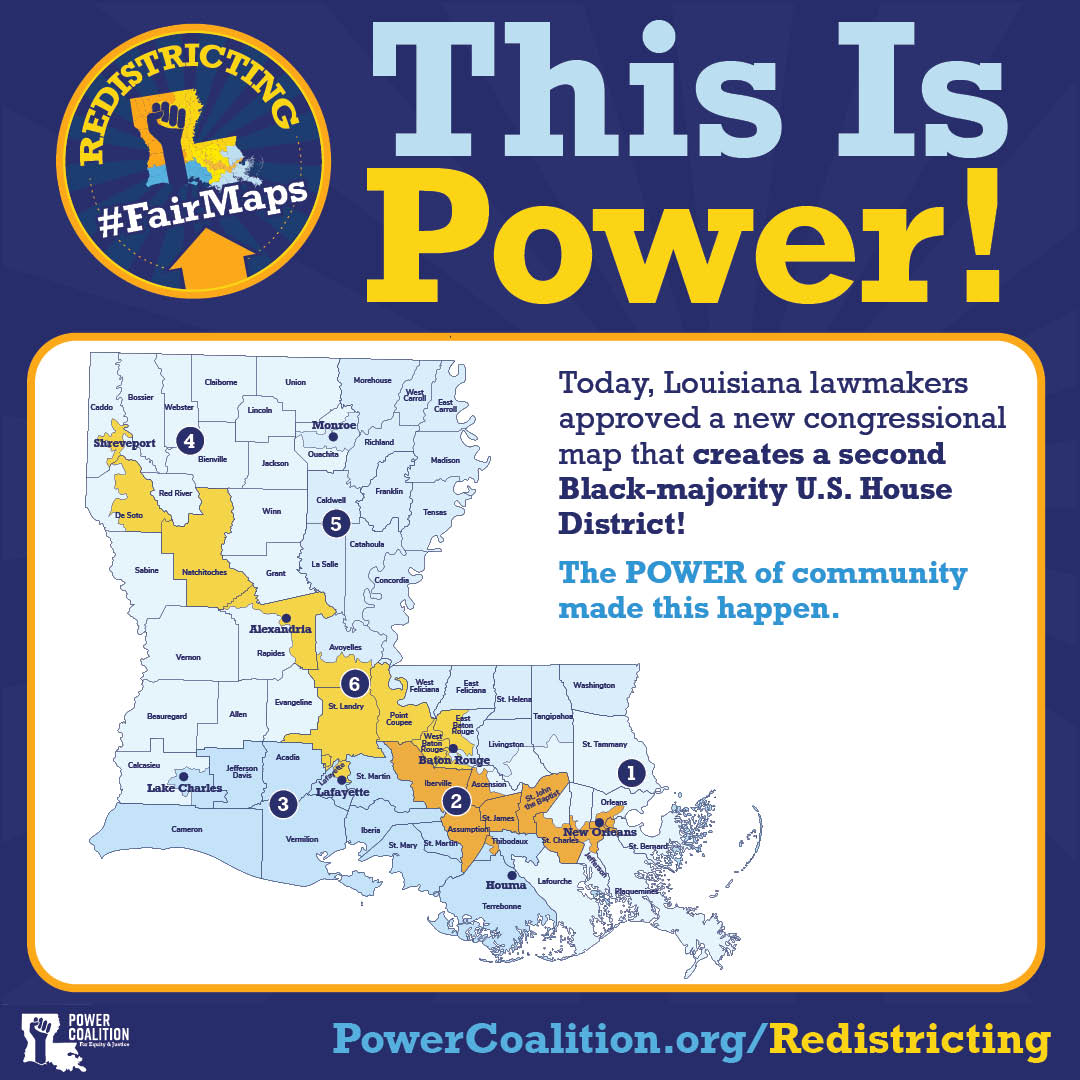
January 19, 2024: Second Majority-Black U.S. House Disctrict Created!
Today, Senate Bill #8, a map creating a second majority-Black congressional district, was passed in the Louisiana Legislature after a week of the Redistricting Special Session. The state was granted a final opportunity to pass a map before the deadline of the Federal court trial of Robinson v. Landry, whose plaintiffs include the Power Coalition, Press Robinson, and Davante Lewis, among many others.
The passage of this map marks the opportunity for Black voters in this second congressional district to have a fair chance at political representation.
This outcome has been years in the making, and at the Power Coalition, we want to thank the partners, those who supported our Redistricting Mass Mobilization (both in person and remotely), community members, and fellow plaintiffs who have been in this fight with us since the very beginning. Ashley Shelton, our Founder and CEO, underscores just how much the support meant to the passage of this map; "Thousands of Louisianians mobilized to make their voices heard in this process. Their call for fair and representative maps echoed through every stop of the redistricting roadshow in 2021, the redistricting session in 2022, the circuit court argument in 2023, and this special session now in 2024. This moment has been years in the making. Through every challenge and delay, we have been clear in our mission to achieve political power, equity, and justice for Black voters in this State." And so the outcome is clear; our POWER is only as strong as our numbers, and the numbers have shown our representation that though our justice was delayed, our community refuses to be deterred! We won the fight for fair maps!
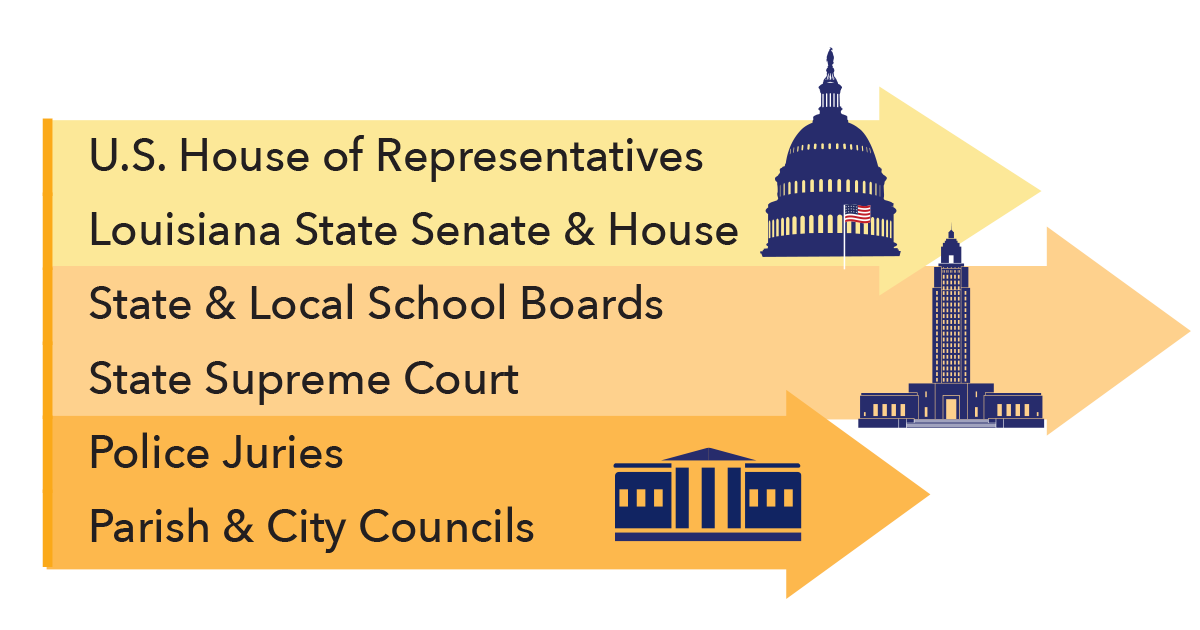
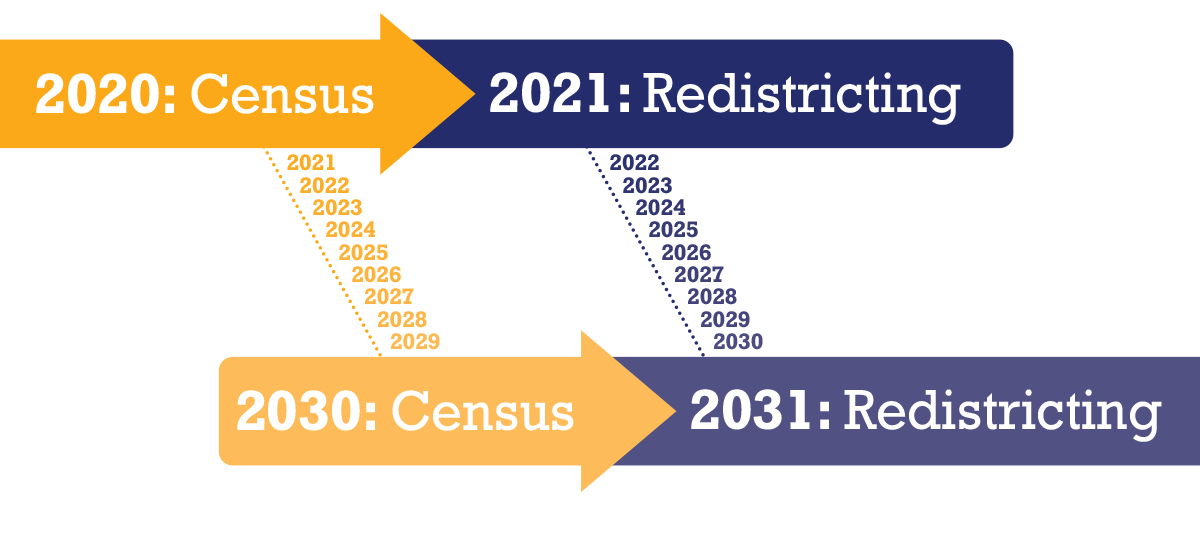
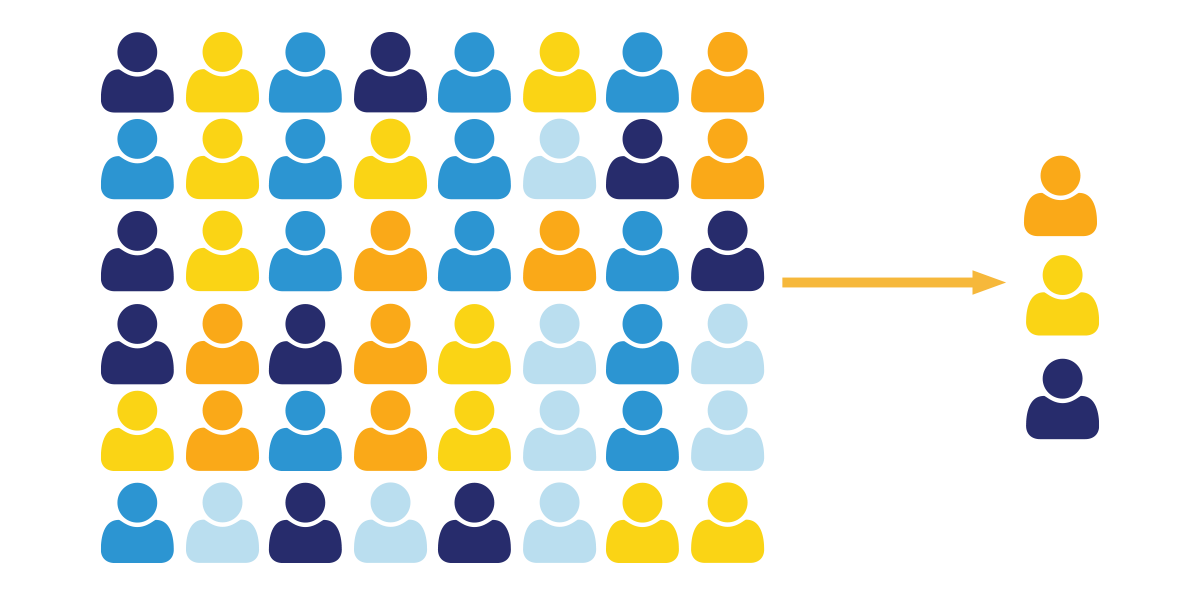
- Contiguity: Every district has to remain connected–they can’t “jump” from one place to another.
- Compactness: With few exceptions, districts shouldn’t be drawn in extremely odd shapes.
- Communities of Interest:This one can be very subjective, and is the most controversial. Generally, districts should try to keep populations that share interests--e.g., fishing communities--together as much as possible.
- Redistricting plays a critical role in who runs for office, who is elected, and how they vote once they’re in office.
- It’s one of the most important factors in determining who represents you and how they represent you.
who runs for office
who is elected
how they vote
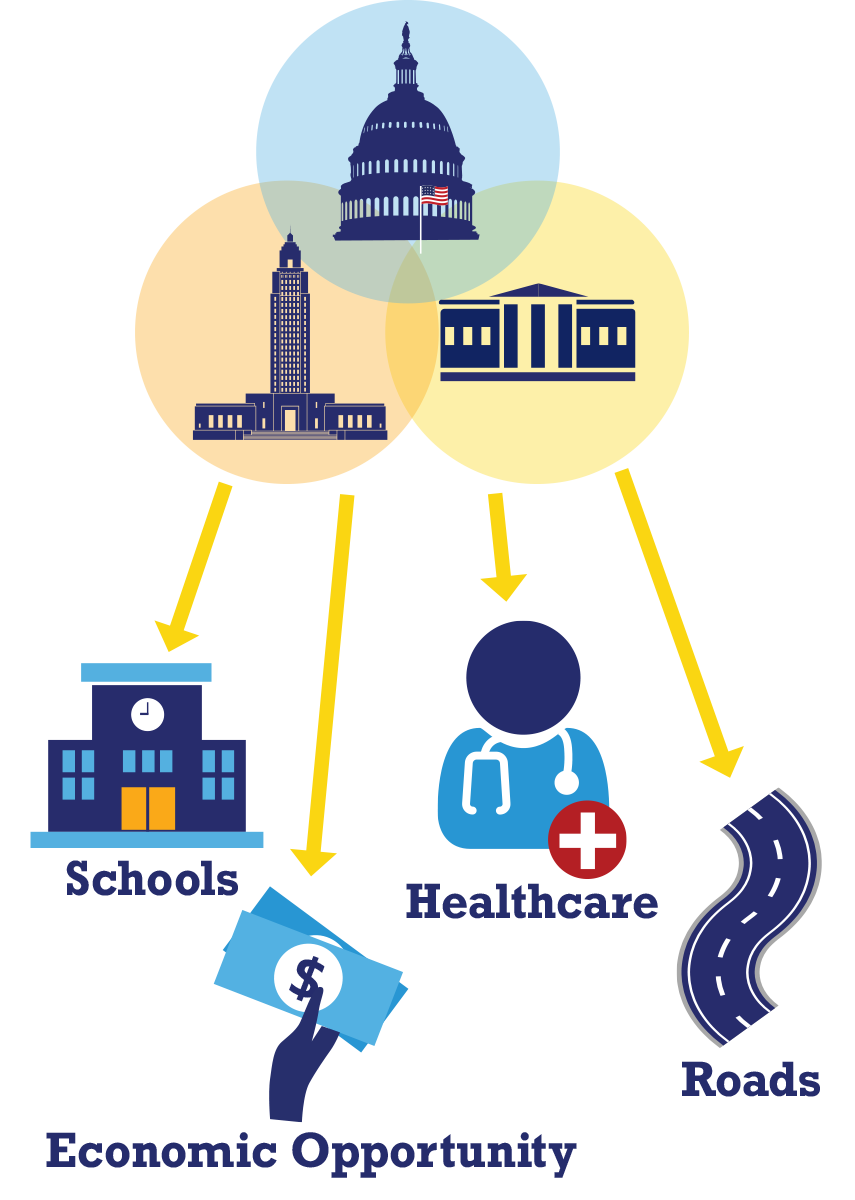
- Your local, state, and federal elected representatives make decisions that impact your everyday life, like economic opportunity, healthcare, schools, roads, and so much more.
- The makeup of a district can significantly influence how and whether elected officials respond to a community’s needs.
- Redistricting only happens once every 10 years, and the policy impact can last even longer. We can’t miss this chance to demand fair and representative districts.
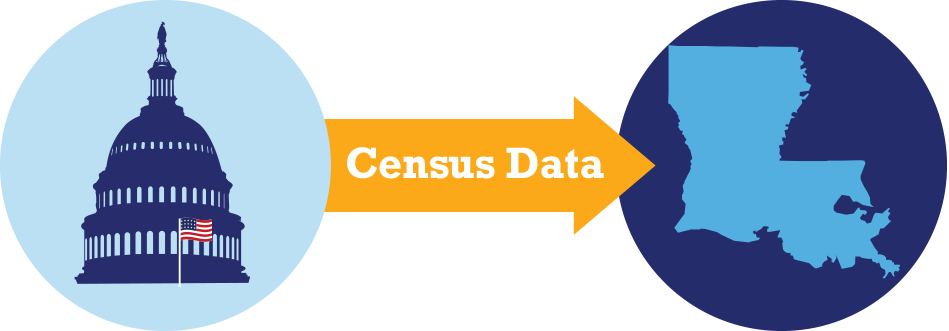
1
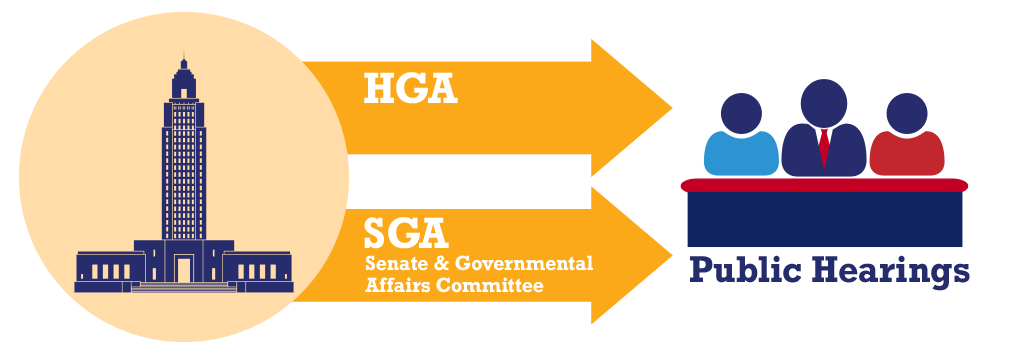
2
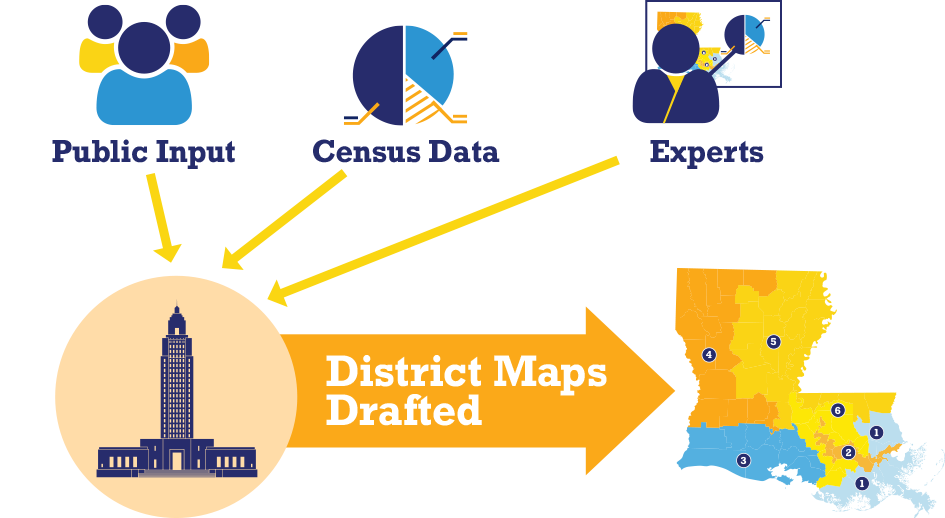
3
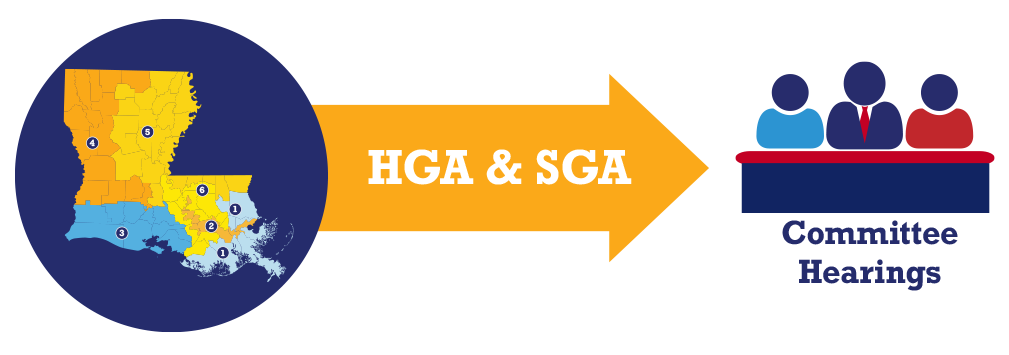
4
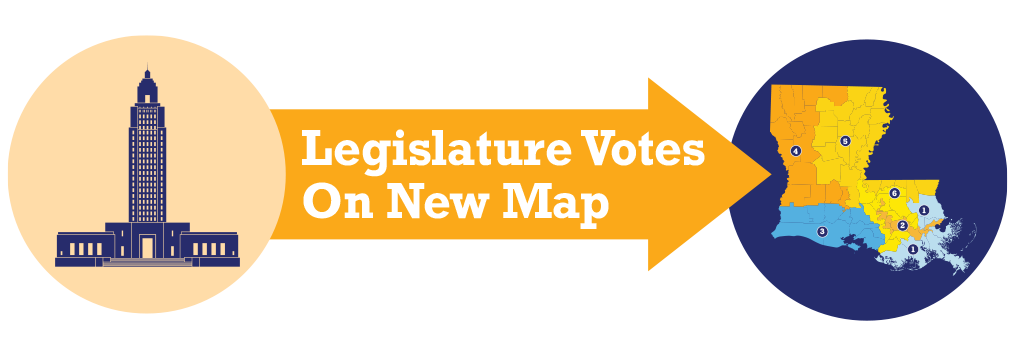
5
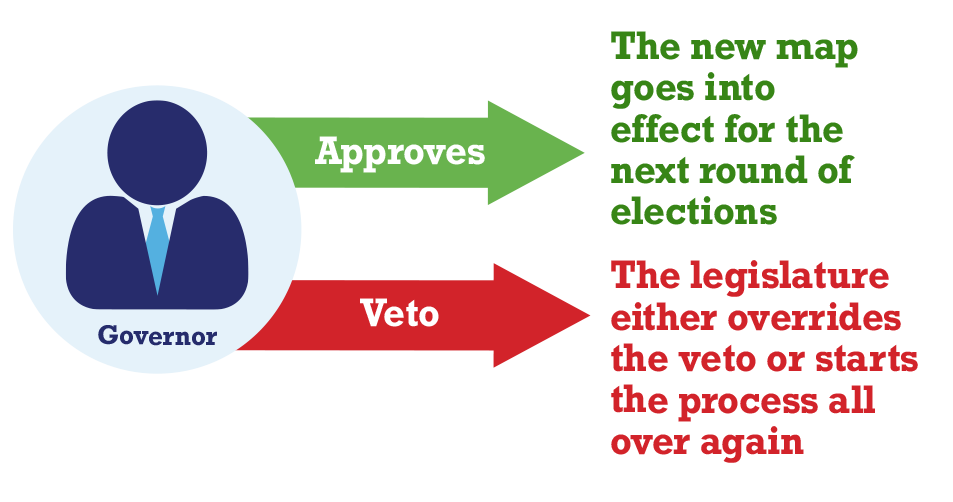
6

Louisiana Legislature
- U.S. Congress
- State Senate & House
- State Supreme Court
- Board of Elementary and Secondary Education (BESE)
- Public Service Commission (PSC)

- The public plays a key role in determining how the redistricting process plays out and how the district lines are ultimately drawn.
- Submit comments during public redistricting hearings.
- Anyone can do it.
Local Governments
- City Council
- Parish Council
- Police Jury
- Judicial
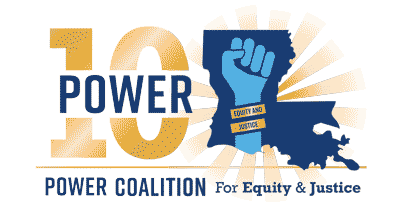


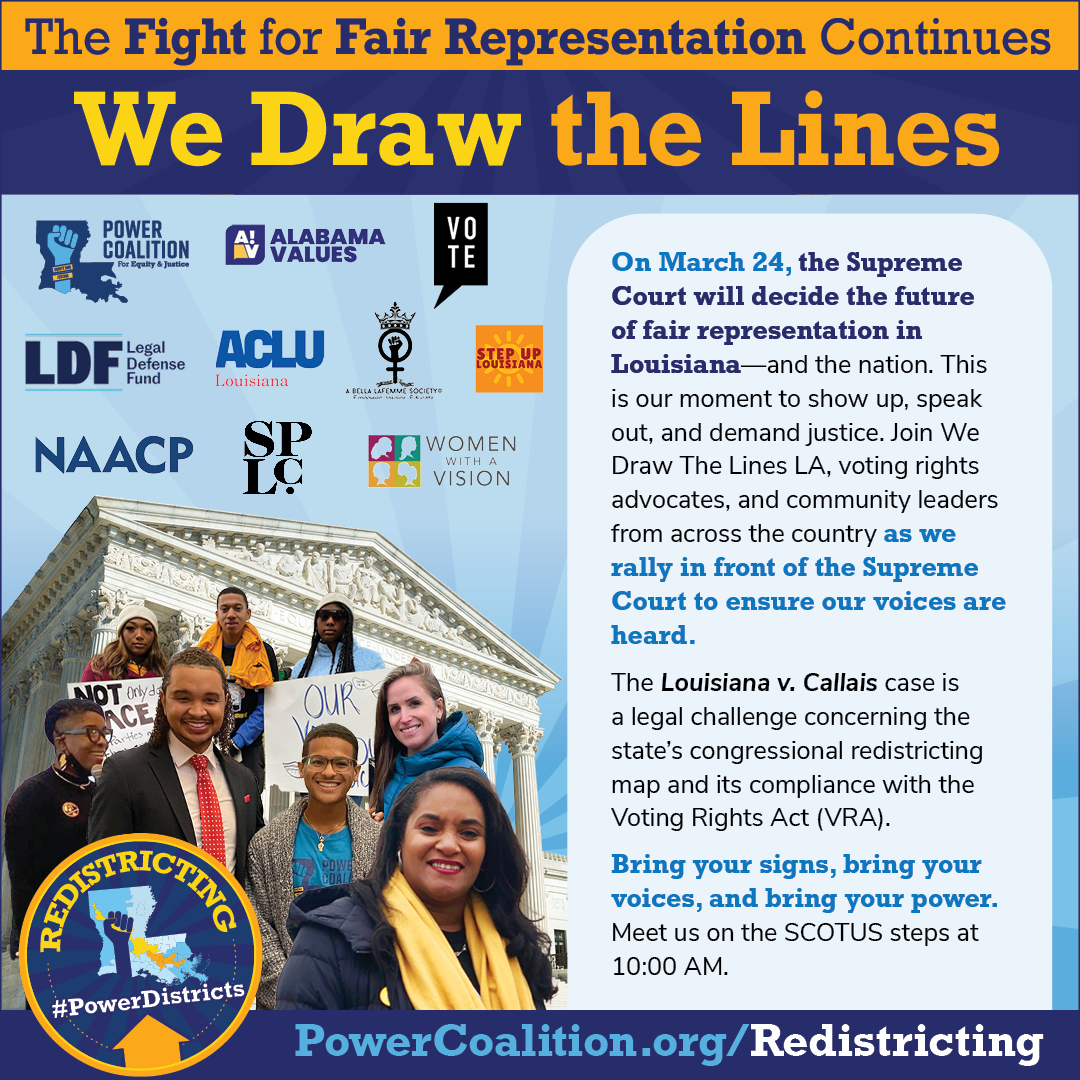
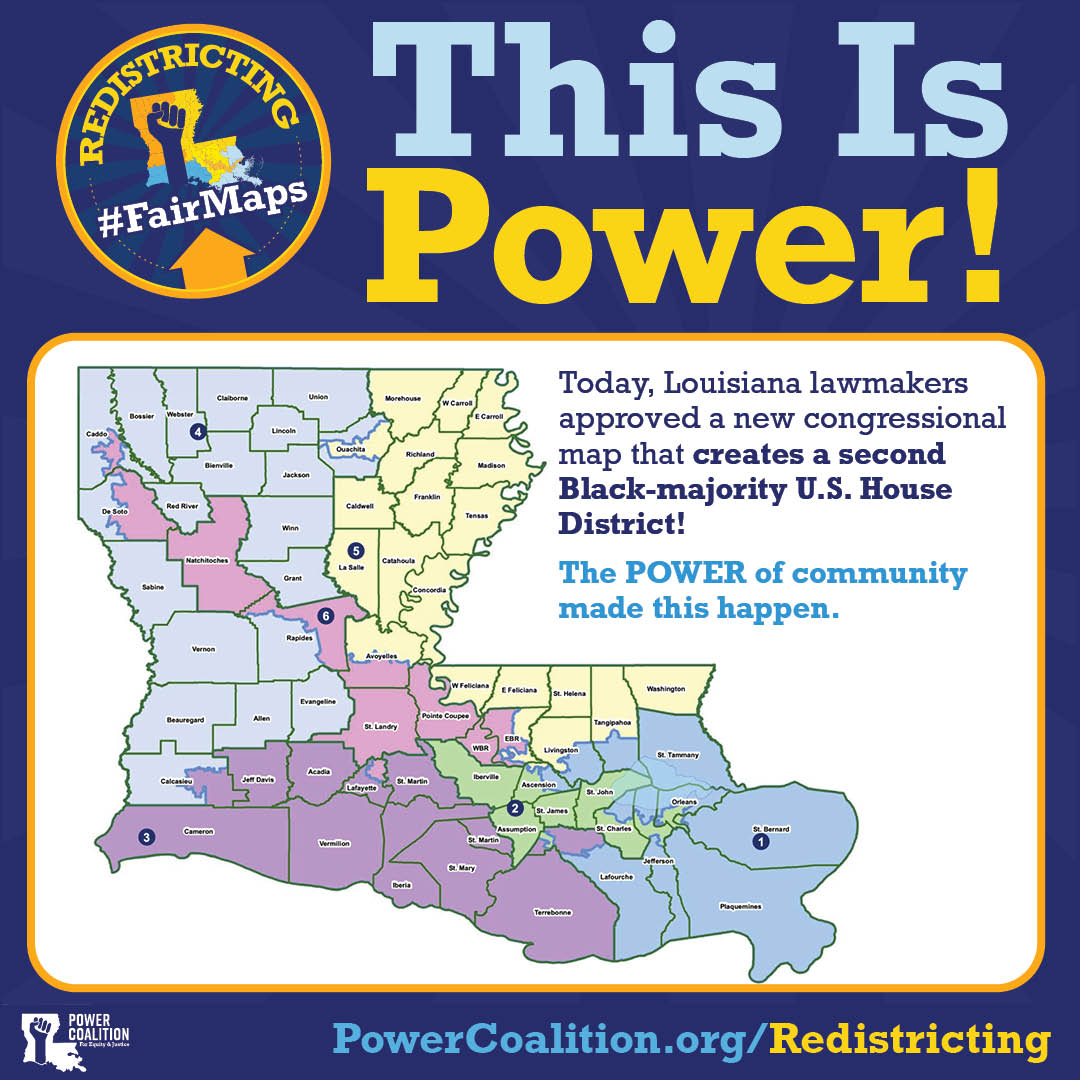
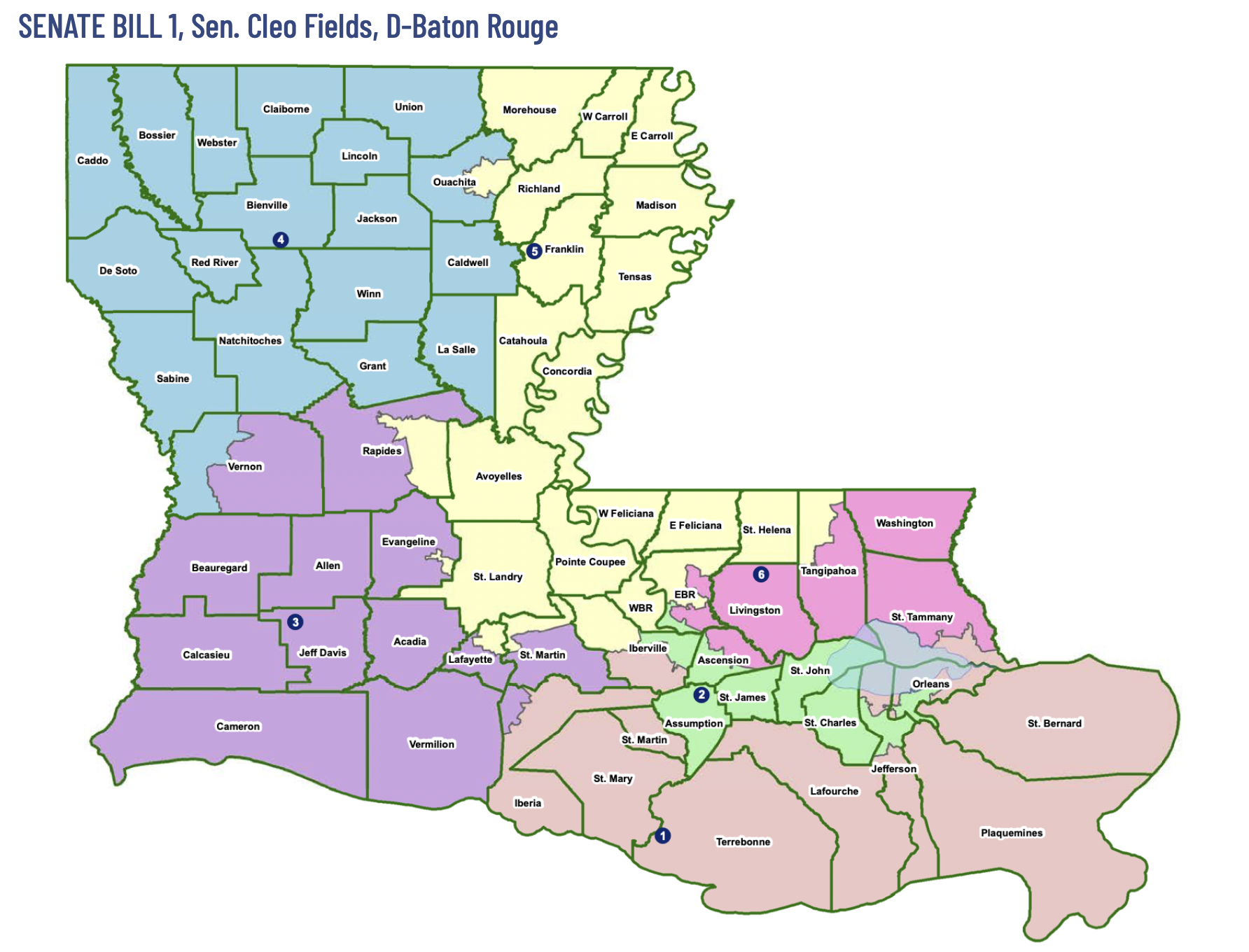 Click to View Map Larger.
Click to View Map Larger.